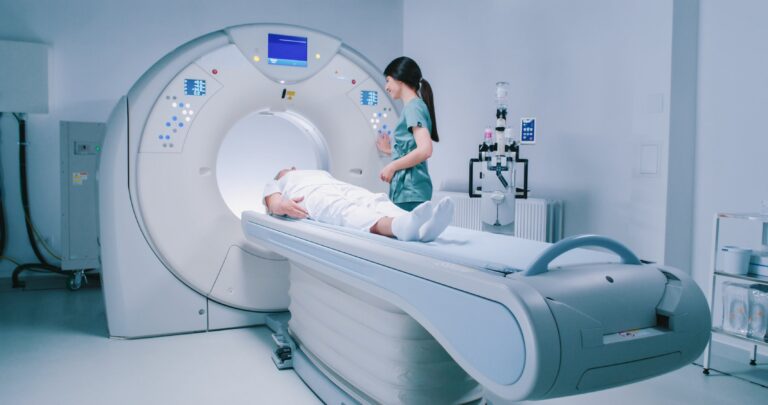Understanding the Role of Senior Care Urgent Care Centers in Community Health
In recent years, the demand for senior care services has grown significantly, driven by an aging population that requires more healthcare resources. Senior care urgent care centers have emerged as vital components of community health, providing accessible, immediate medical services tailored to older adults. These facilities focus on treating non-life-threatening conditions that require prompt attention, helping to alleviate the burden on emergency rooms and primary care offices. We will explore senior care urgent care centers’ functions, benefits, and community impact, highlighting their importance in enhancing healthcare delivery for seniors and the broader community.
Accessibility and Convenience
One of the primary advantages of senior care urgent care centers is their accessibility. These facilities are often located within communities, making it easier for older adults to receive immediate care without the hassle of traveling long distances. Unlike traditional hospitals, which may be overwhelming for seniors, urgent care centers typically provide a more inviting environment catering to their needs. This convenience is essential for seniors with mobility issues or requiring assistance getting to medical appointments.
Moreover, senior care urgent care centers often have extended hours of operation, including evenings and weekends, accommodating the schedules of seniors and their caregivers. This flexibility allows for prompt treatment of minor injuries, illnesses, and other health concerns, helping to prevent complications that could arise if conditions are left untreated. By reducing wait times and ensuring timely access to healthcare services, these centers play a crucial role in maintaining the health and well-being of older adults in the community.
Comprehensive Care Focused on Seniors
Senior care urgent care center is designed specifically for the needs of older adults. The facility staff is trained to recognize and manage health issues commonly faced by seniors, including chronic conditions such as diabetes, hypertension, and arthritis. This tailored approach ensures seniors receive appropriate evaluations, treatments, and follow-up care for their unique health concerns.
In addition to acute care for sudden health issues, these centers often provide preventive services such as vaccinations, health screenings, and wellness check-ups. By promoting preventive care, senior care urgent care centers help identify potential health problems before they escalate, ultimately contributing to better long-term health outcomes for seniors. These centers’ emphasis on comprehensive care fosters a holistic approach to senior health, addressing immediate and ongoing healthcare needs.
Reducing Emergency Room Overcrowding
Emergency rooms often experience overcrowding, particularly during peak hours and flu seasons. Many seniors find themselves in emergency rooms for non-life-threatening conditions due to a lack of alternative options for immediate care. Senior care urgent care centers help mitigate this issue by providing a suitable alternative for older adults who require prompt medical attention but do not need the extensive resources of an emergency room.
By diverting seniors from emergency departments for minor health issues, these centers can significantly reduce wait times and the strain on emergency services. This allows hospitals to allocate resources more effectively and ensures that emergency rooms are available for patients with severe medical emergencies. In turn, this contributes to an overall improvement in the quality of care available within the community, fostering a more efficient healthcare system that benefits everyone.
Coordinated Care and Follow-Up
Senior care urgent care centers also play a vital role in coordinating care for older adults. Many seniors have multiple healthcare providers and may require assistance managing their medications and treatment plans. These centers can serve as a hub for communication among various healthcare professionals, ensuring that all providers are informed about a patient’s recent visits, treatments, and ongoing health concerns.
This coordination is especially important for seniors, who often navigate complex healthcare systems with multiple specialists. By streamlining provider communication, senior care urgent care centers can help prevent medication errors, reduce unnecessary tests, and ensure treatment plans are tailored to each patient’s needs. Additionally, these centers often facilitate referrals to other healthcare services, including rehabilitation, home health care, and long-term care, promoting a seamless transition for seniors requiring additional support.
Education and Resources for Caregivers
Caregivers play an essential role in supporting the health and well-being of seniors, and senior care urgent care centers often provide valuable resources and education for them. These centers recognize that caregivers face unique challenges, including managing complex health needs, navigating healthcare systems, and coping with the emotional demands of caregiving.
Senior care urgent care centers empower caregivers with the knowledge and skills to effectively support their loved ones by offering educational workshops, support groups, and informational materials. These resources can include training on medication management, understanding chronic diseases, and recognizing signs of potential health issues. Furthermore, by creating a supportive community environment, these centers help reduce caregiver stress and promote overall wellness for seniors and their caregivers.
Senior care urgent care centers are increasingly recognized as vital components of community health, providing essential services tailored to the needs of older adults. By enhancing accessibility, offering comprehensive care, reducing emergency room overcrowding, and supporting caregivers, these facilities improve health outcomes for seniors and the wider community. As the population ages, the importance of these centers will only grow, highlighting the need for ongoing support and investment in senior-focused healthcare services. By fostering a more integrated and responsive healthcare system, we can ensure seniors receive the care they deserve, enhancing their quality of life and well-being.






